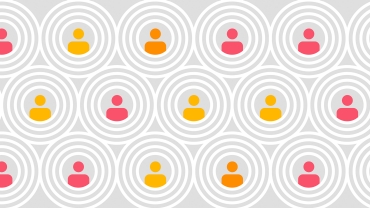
Weaving for a truly Filipino identity | as easy as ABC
4 September 2016
I was working my foot off on a large pedal of a one-wheeler. No, it was not a single-wheel “bicycle.” It was a Singer sewing machine, and I was in sixth grade. It was my mother’s favorite machine, the one she taught me how to use when she was still all young, healthy and alive. Not a toy for boys you would say, but I didn’t mind. With it I made my own pajamas, and converted to tight “baston” all my flared pants, to the disapproval of my father. My only fear in doing it was sewing my own finger onto the fabric under that single large needle that goes faster as I pedal with more stress.
That machine was long abandoned. If it was ever a family tradition, it died along with the machine’s retirement, without my mother to use it, and with me unwilling to put my pointer finger at further risk against that large needle.
There is method to this opening story, as I give recognition this Sunday to a Filipino tradition that is still made alive by insistent parents, indigenous people, and social entrepreneurs who support them. That tradition is fabric-weaving.
Anya, who is a daughter to parents in the garments business, was so immersed working with NGOs that she took a Masters in Communication degree for social change in a university in Australia and practiced there. Back here at home, she personally witnessed how an Igorot village in Banaue, once thriving in craft, music, and culture, was reduced to a mere ghost town when she returned to it years later. The artists and craftsmen there became tour guides in the city to earn instant cash.
Heartbroken at what she saw, and fueled with a sense of urgency, she was led to the footsteps of the house of Aling Naty, 59, is the head weaver of a community in Abra. Aling Naty begins her day at 4 a.m. to start the warping and design process of the weaves. She has taught women in their community the lessons she herself received from her mother as early as when she was at a tender age of 12 years. Today, Aling Naty has a community of 48 women weavers under her tutelage. Asked why she possesses so much devotion to it, she replies: “Ito po ang kinalakihan namin; ang tanging yaman na ipinasa sa amin ng aming mga ninuno. Mahalaga po na hindi siya mawala para din po may pangkabuhayan pa ang mga kababaihan at hindi lang basta umaasa sa konting kita ng mga asawa sa pagsasaka.” (This is what we grew up with, the only treasure passed on to us by our ancestors. It is important that we don’t lose it. It’s our womenfolk’s livelihood so that they don’t depend on their husbands’ modest earnings from farming).
Aling Naty’s community became the first ones to be supported by Anya’s ANTHILL (Alternative Nest and Trading/Training Hub for Indigenous/Ingenious Little Livelihood seekers), which she co-founded with her mother. From the treks of the farmlands to the homes of the tribal communities, anthills thrive at the seams. Anya’s team of weavers work hard like ants and produce woven fabrics that are stacked like hills. The indigenous people are tradition- and production-oriented, but we know it takes more than production for a business to thrive. It needs distribution to the right market. First things first—it needs to cater to the market’s contemporary taste. Thus, Anya uses both business acumen and design ingenuity to help her save a dying Filipino tradition, and a very Filipino culture. She even buys at a higher price the products of the weavers who can show that their children are being trained how to weave—this is incentivizing succession. The individual product tags even show the names of the persons who have actually handwoven the items. That makes it very personal for the buyer.
For these reasons, ANTHILL bagged the first prize at the Developmental Social Enterprise Awards (jointly presented by PwC and BCYF) from which she receives, as support, additional seed money and business consultancy.
The recent trip of our PwC managers and staff to Thailand last week introduced them to a number of cultural uniqueness of the place, and along with it, the Thai Silk. I was refreshed that after the War, Jim Thompson, an American spy-turned-businessman settled in Thailand and founded the Thai Silk Co. It helped revitalize the silkworm industry in Thailand and was considered instrumental in taking thousands of poor Thais out of poverty.
I mention this because unlike the history of silk in Thailand, no foreigner was ever responsible for the culture and industry behind woven garments that are uniquely Filipino. The woven abaca garments from abaca trees, the piña cloth from the leaves of pineapple plants, the jusi from abaca, were all grown and sewn by indigenous Filipinos and supporting communities. In fact, even before the Spaniards came to the Philippines, weaving was already a thriving industry. I learned that the Bagobos have inabal, the Maranaos have langkit, the Ilonggos have hablon, the Tausugs have pis siyabit, the Bajaos have pandan, the T’boli have t’nalak, the B’laan have ikat, the Tingguians have sinankusilos, and the Tagakaolo have pamokan. All tribal, all Filipino.
However, our century-old art form, and livelihood at the same time, remains largely a cottage industry for many. Laws that protect the indigenous peoples’ tracts of land are not enough. Apart from efforts of social entrepreneurs like Anya, this combined culture, art, and industry of weaving deserves the decisive support of the Philippine government. In fact, there should be a national day for tribal weavers; a national day that says we care about our culture.
There is one thing more. While woven garments in contemporary designs find their niche in the export market, we should have a fashion check or reset, and revisit these local handwoven products. Buy them, and be proud to wear our identity. Who cares if we are Filipino? If we don’t, no one will.
Alexander B. Cabrera is the chairman and senior partner of Isla Lipana & Co./PwC Philippines. He also chairs the Educated Marginalized Entrepreneurs Resource Generation (EMERGE) program of the Management Association of the Philippines (MAP). Email your comments and questions to aseasyasABC@ph.pwc.com. This content is for general information purposes only, and should not be used as a substitute for consultation with professional advisors.
Contact us







